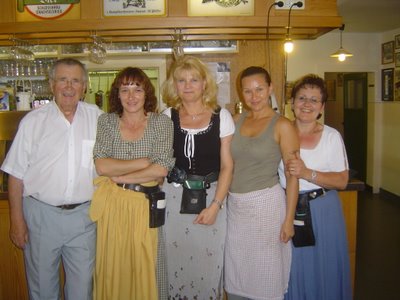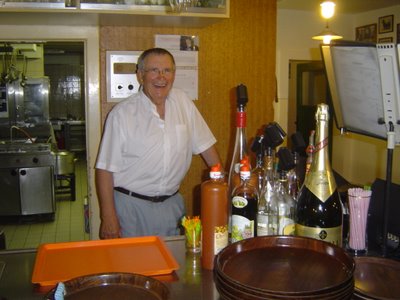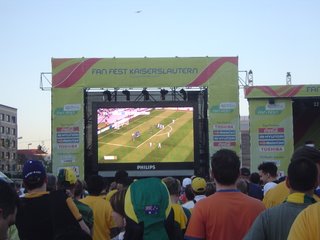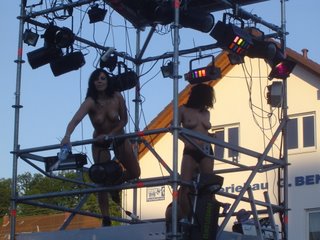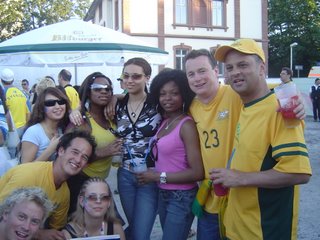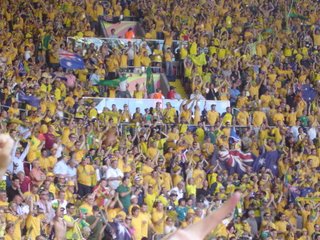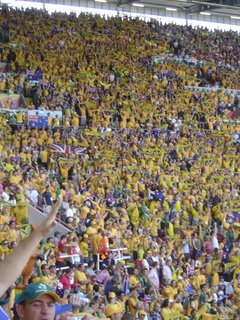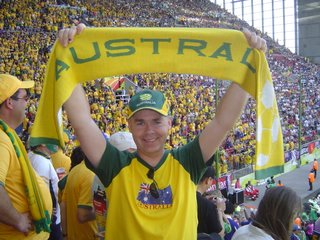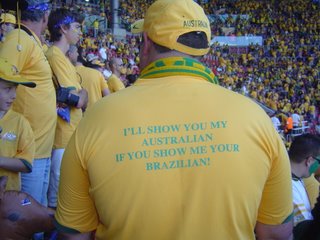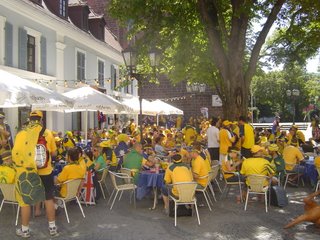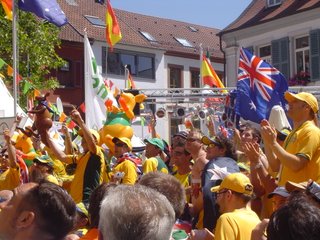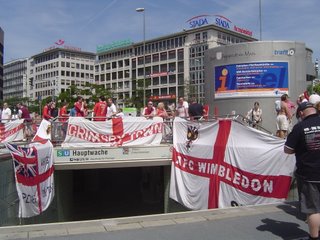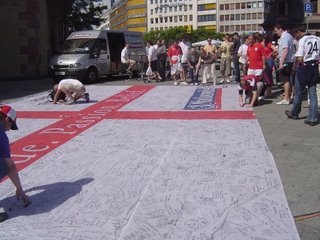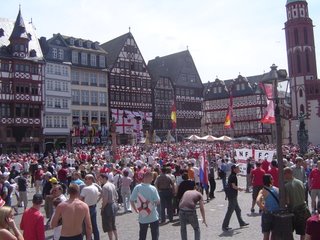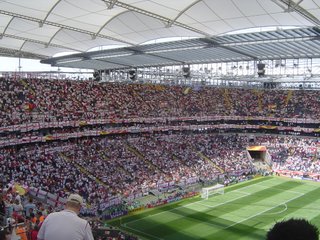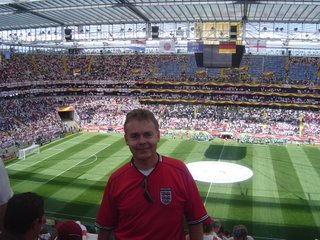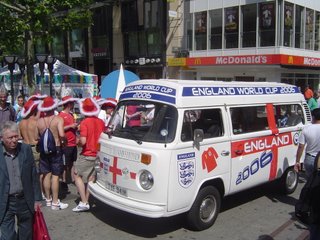Day 19: Australia v Italy
The record book will show Italy won 1-0, but Australians will remember the horrible circumstances for a long time. A dubious penalty three minutes into injury time was a cruel way to end for a team that had given so much. The fact remains, however, that Australia showed few signs of penetrating an Italian team down to 10 men for most of the second half, and it seems Guus was intent on hanging on into extra time and relying on superior fitness. He made no substitutions until the 83rd minute, as if saving fresh players for later. The tactic did not work, which takes nothing away from his wonderful achievemens with the team in a few months.
As a pivotal moment in Australia's campaign, I thought the penalty deserved lengthy analysis, so I wrote the following piece for crikey.com.au which they ran (edited) on Thursday 29th.
The Italian Penalty
It’s already been labelled as the greatest injustice in Australian sporting history. There is no doubt that the Round of 16 penalty awarded to Italy against Lucas Neill will be remembered forever and cause ongoing debate within Australia.
But take a look at the international press today. Ghana is complaining that officials always favour Brazil, and Spain believes Thierry Henry dived when awarded the foul which led to the second French goal. Across the world, the losers are complaining about the referees, and hints of conspiracy theories and favoured nations abound. I have just returned from three weeks at the World Cup, and much of the refereeing has been pivotal and poor.
It’s often the case in life that the greatest virtue of something is also its greatest weakness. A vase may be beautiful due to its fineness and delicacy, but it also makes it vulnerable to breakage. In football, a goal is a truly wonderful thing due to its relative scarcity, and the difficulty in scoring builds the tension that is one of the great attractions of the game. This may sound a strange concept to a lover of basketball or Aussie Rules, but that is borne of a different expectation from their sport.
The lack of goals, however, does create its own problem. It means one single incident can turn a game in a way that could not happen in basketball. If you score a hundred times a game, who cares if the referee is wrong on one or two calls. In football, the focus on that one decision after the game may be intense.
Let’s consider the Italian penalty by examining the nature of refereeing. I played competitive football for 25 years before qualifying as a referee and officiating at Premier League games. As I player, I rarely had doubts about what was a correct decision. If I was involved in an incident, I knew my own motivations. How could I be penalised for an elbow to the face when I was simply using my arms to jump higher? Even watching my favourite teams, there was little ambiguity. I had a particular point of reference, in the same way a capitalist or a communist may view a social issue.
Much to my surprise when I started refereeing, amid a cauldron of volatile personalities and nationalities, a desperate desire to win, and a necessity to make instant choices without replays, decisions became far less clear. Did that player dive or was he tripped? Was that a body check or did the two players simply run into each other? Was that a deliberate handball? As a complete neutral, the referee judges each incident on its merits, and often has to interpret motivations without being inside the mind of the perpetrator.
And it’s not simply yes or no, foul or not. There are four stages of ‘punishment’ to judge on each foul, and the referee must decide between:
*No foul, play on.
*Foul play, award a free kick only.
*Foul play, deserving a yellow card.
*Dangerous play, deserving a red card.
Imagine that. Every one of the hundreds of incidents in a game must be instantly graded according to a scale of 1 to 4. The referee must stay up with the game when the ball can be hit 75 metres by some of the fittest athletes in the world, with billions of people receiving replays from every angle.
Now to the Italian penalty. Lucas Neill slid in front of Fabio Grosso to make a tackle. Grosso turned the back inside Neill, placing Neill between the ball and the attacker. Grosso then fell over Neill, and maybe he dived. The crucial point, though, is that Neill does not simply lie on the ground. He actually raises his left arm as Grosso goes over him. It’s highly likely the Italian would have dived in any case, but the referee sees the incident in its entirety. He was a few metres away, and saw what looked like Neill’s attempt to block his opponent. No hesitation, no doubt in the referee’s mind, penalty. Lucas Neill had an outstanding tournament, but he should not have gone to ground and then raised his arm and created the opportunity for the Italian.
Mark Viduka called it a ‘soft decision’, and Craig Foster called it ‘50/50’. It was not a ridiculous penalty decision, it was not a stupid refereeing mistake. It was a reasonable judgement call that the official had to make, even if it was harsh and could have gone either way.
I suspect most Australians, many new to the game, are particularly upset because of what might have been, and this clouds their judgement. We almost reached extra time, we played well with the majority of possession, and we somehow ‘deserved’ to win the match. Whatever the reason, the penalty itself was not a complete injustice, and welcome to the beautiful game.









